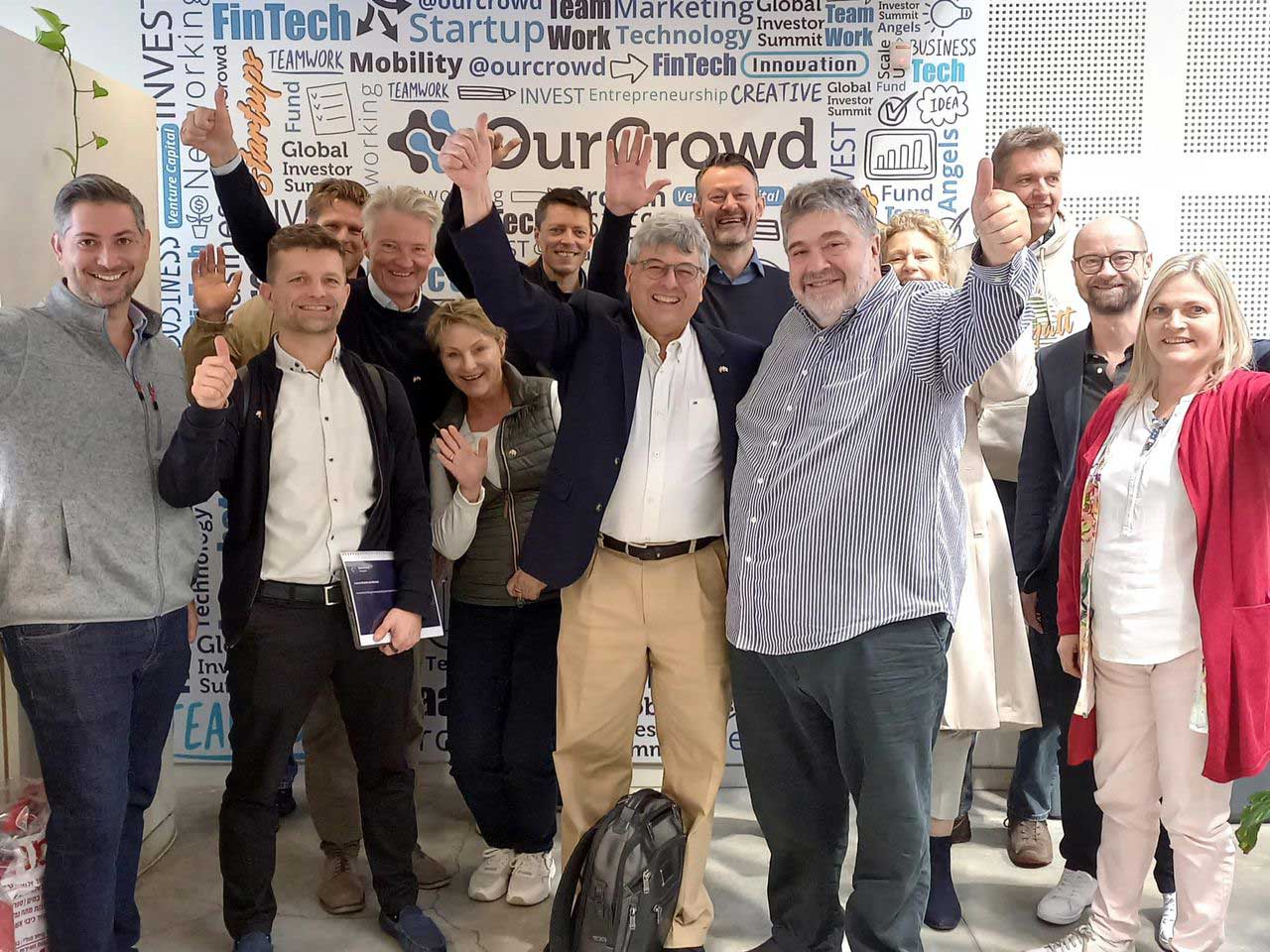
What would we do differently were we located in Tel Aviv if anything?
Israel has created more than 100 unicorns in the tech space including food- and biotek acounting for roughly 10% of the World’s unicorns. More than 420 VCs in Israel invest into the tech sector there. In 1HY of 2022 israel invested 320m USD into the alternative protein space, with USA at 827m USD, and China in 3rd place with 120m USD. Total pool was 1.75b USD.
PlanetyDairy joined a delegation hosted by Jesper Rauff from the Israeli Embassy and members of the “Guldæg Jury” and met a network relevant to PlanetDairy, VCs like Ourcrowd and The Kitchen Food Tech Hub, government officials, and Academia.
We are in such a critical phase of our own development, and the day-to-day priorities have our full focus. So, as much as we wanted to go we were not entirely sure a week away would be the best use of time. Boy were we wrong.
The overarching inspiration lingering in our mind, can best be expressed as what we would be doing differently if our startup was in Tel Aviv. Here some sound bites:
Scale fast and avoid the pitfall of a proof-of-concept market. Denmark and Israel are both small countries. Our lead thinking is that DK is the perfect hub as a learning market. Invest a little, learn a lot and then scale. Well, an Israeli startup would say that it is too risky to prove the concept with 1 egg only, and that this proof-of-concept market quickly runs the risk of diluting resources from a bigger play. The focus may even become to protect that first market rather than creating more and diverse the risk.
“In Israel the investors are pitching to the startups, not the other way around” we heard repeatedly as a popular statement said with a smile.Somewhat counterintuitive to the argument that investors want to see some repeat business on a small scale before supporting any kind of valuation that would render oxygen to a much bigger bet. This speaks to the VC environment in Israel, which is bold, fast and huge. Of course noone is giving money away and certainly not in the current economic environment, but we were repeatedly encouraged to think bigger, ask for more to do more, and move bigger and faster. Yes, the investor environment is tighter also in Israel, but actually startups that move from bootstrapped to angel, VC or corporate funding are still very investable. Series B and C companies are finding themselves in an environment where it is a lot harder to secure the follow-on investment, and maybe to a valuation lower than the previous round.
Academia and Universities compete to give birth to startups. The mindset in Israel academia and government is how can we do anything in our power to help these startups. Tech in Israel employs 12% of the work force and generates 50% of the GDP of which 90% is export. So how can we find IP for this startup, what regulatory barriers can we help navigate, how can we influence on government level.
Culture is the midwife for startups. Everywhere we came people were so curious to PlanetDairy’s mission. On the personal levels we were energised by the optimism and social reward just for trying. There is no failure in startup, trying is already a success from the point of view of creation. Failing is only not getting back on the feet. It seems to run deep in the culture, and without overstepping cultural sensitivity we sense a deep character of grit and tenacity and infectious optimism. “Start-up is hard” John Medvedev from OurCrowd said, and we are creating an investment community to support”. John made it sound easy, so we keep pushing.
Already some things we will definitely do differently, hopefully we can share as we progress. Lets do it first before we talk about it.
A special thank you to Innovation Officer Jesper Rauff from the Israel Embassy for hosting the group and to the Guldæg Jury for their support and expectations.